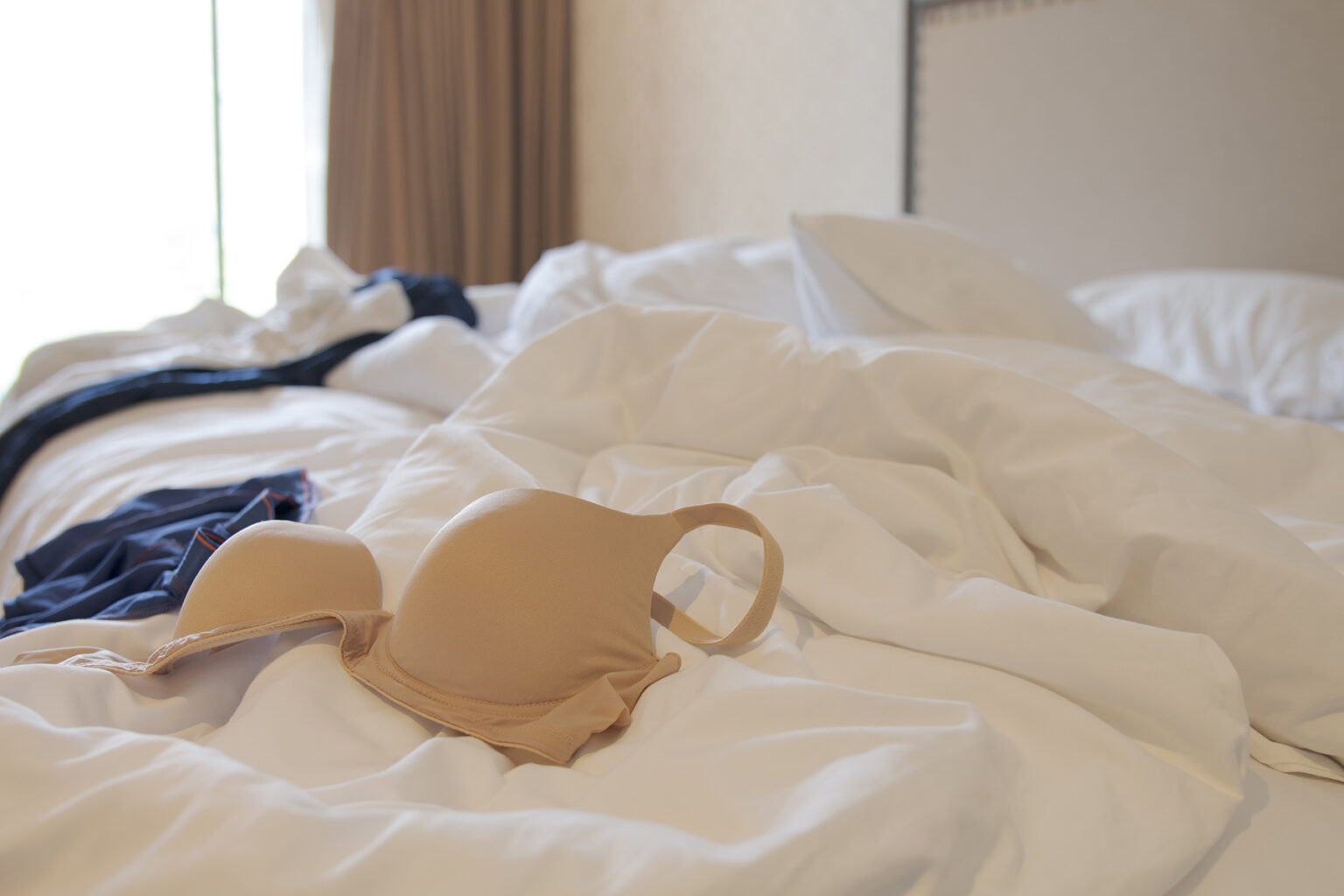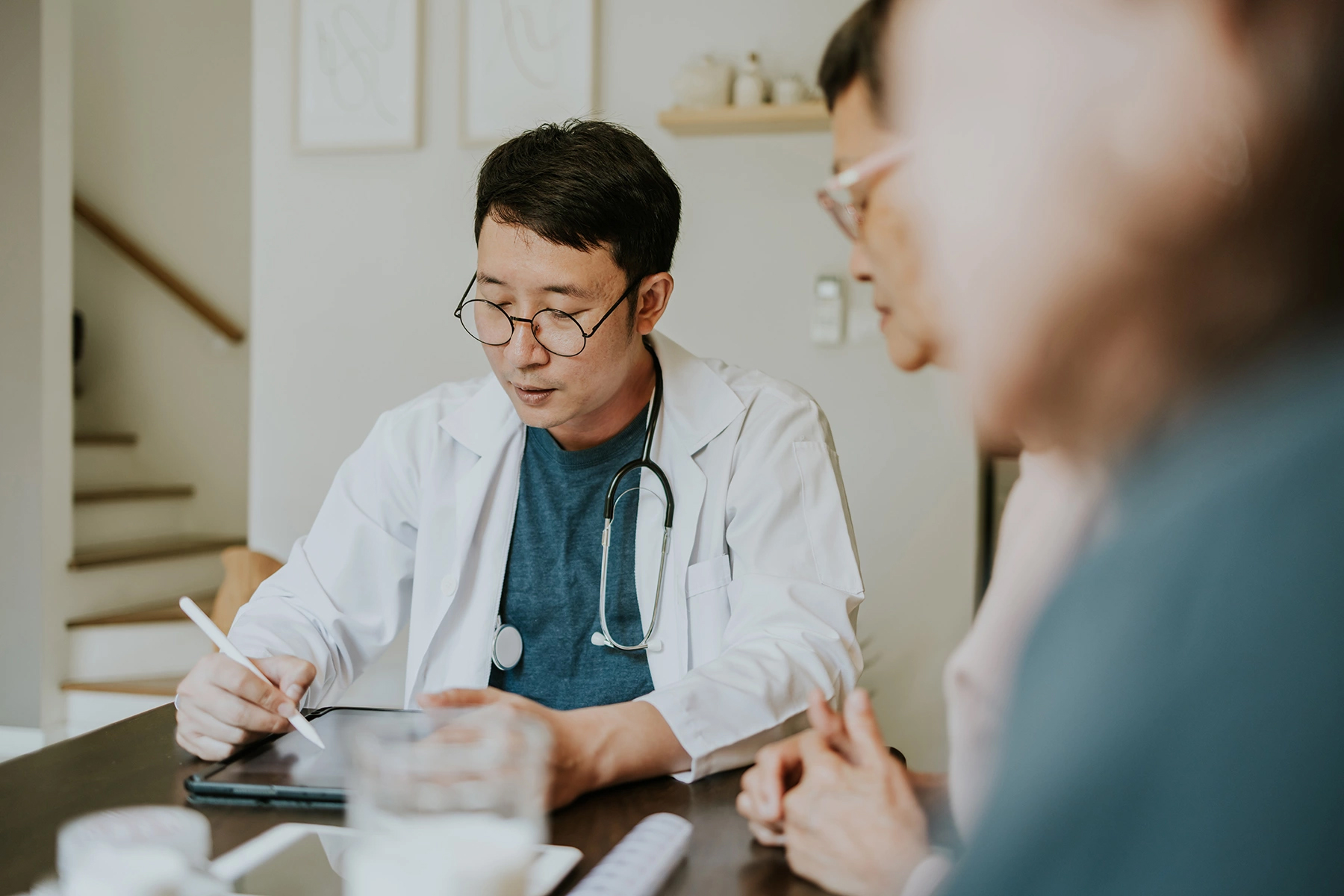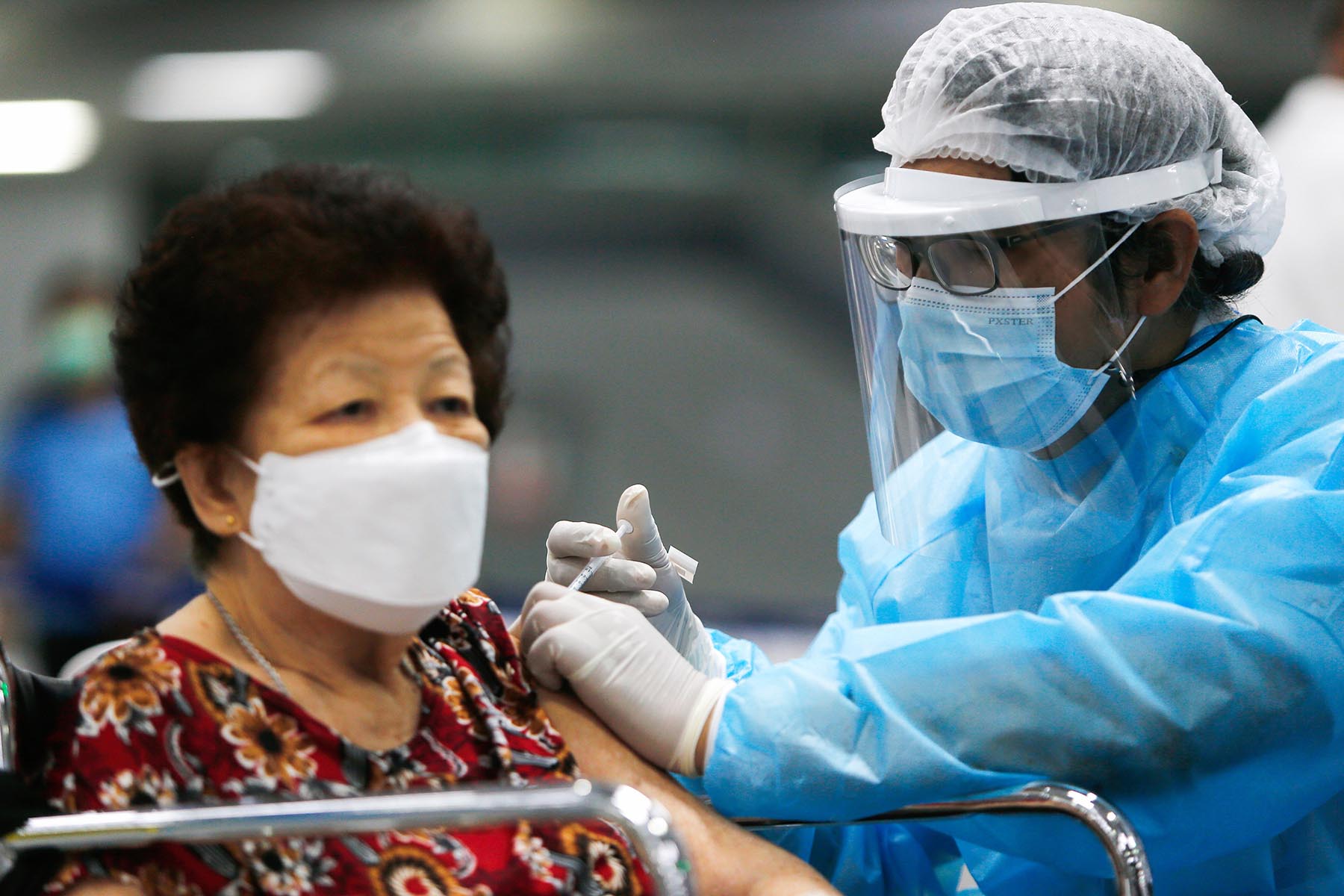Thailand’s Universal Healthcare Coverage Scheme (UCS – โครงการหลักประกันสุขภาพถ้วนหน้า) funds primary sexual and reproductive health, including maternity services and confidential STI testing and treatment. If your needs are more extensive, you can also access a range of specialist private clinics.
This article explores the essential topics to help you understand what’s available for your sexual health and reproductive well-being in Thailand:
- What are the attitudes towards sex and sexuality in Thailand?
- How do you access sexual health services in Thailand?
- Health insurance for sexual and reproductive healthcare
- What forms of contraception are available in Thailand?
- Pregnancy and childbirth in Thailand
- Is abortion legal in Thailand?
- STIs and STDs in Thailand
- Menstrual health in Thailand
- Sexual health and cancer screening programs in Thailand
- Services in Thailand dealing with sexual problems
- Services dealing with sexual abuse and assault in Thailand
- Young people’s sexual health in Thailand
- LGBTQIA+ sexual health in Thailand
- Useful resources
Allianz Care
Allianz Care is a world leader in providing international health insurance. Their various premiums provide professionally designed solutions for a variety of expat lifestyles. So, wherever your life takes you, make sure you have the right health protection for you and your family with Allianz Care.
What are the attitudes towards sex and sexuality in Thailand?
Thailand is a traditionally patriarchal society with distinct gender roles and expectations. It informs local attitudes towards sex and sexuality, where men are believed to have strong and innate sexual desires, but women must be chaste and reserved.

While an image exists of Thailand as a world capital of sex tourism and sexual liberation, local attitudes are more conservative. For example, it is taboo to talk publicly about sex, and sexual toys are banned; you can receive a 3-year prison sentence for selling them. Still, the county’s illegal sex work industry is thriving.
The legal age of consent in Thailand is 15, although a caveat added under the Penal Code Amendment Act in 1997 made it illegal to engage in sex with anyone under 18.
Marriage and dating practices differ across Thailand. City dwellers tend to adopt a more liberal approach to relationships, while residents in rural areas often encourage weddings and family approval. Legally, you need parental consent for marriage if you are aged between 17 and 19 and permission from the Family Court if you are younger than 17.
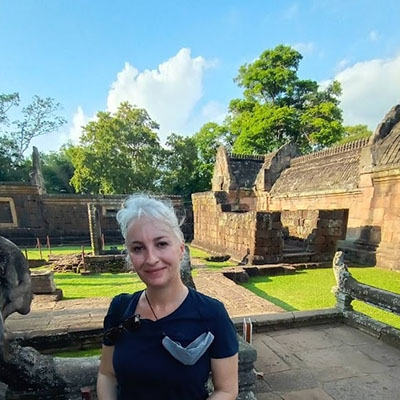
Local expert
Jane Evans
Insider tip
Weddings often proceed without registry signings to maintain appearances. This practice allows young Thai women and their families to preserve their reputation while living with a romantic partner.
According to data from the National Statistics Office (NSO), since 2011, fewer Thai people have chosen to have children (i.e., declining birth rates), and divorce is on the rise, while marriage rates have remained stable, with a slight decrease in some years.
Fortunately, Thailand has more inclusive LGBTQIA+ views. Stonewall (a UK-based charity) categorizes it as a Zone 1 country, indicating societal tolerance and employment protections to prevent discrimination.
How do you access sexual health services in Thailand?
Thailand’s healthcare system – or UCS – is free for most Thais and permanent residents. As a working expat living in the country, you typically make social security contributions to access the system.
All public hospitals in Thailand have dedicated family planning clinics and offer free screening programs, including for STIs and cancer. The Population and Community Development Association ( PDA – สมาคมพัฒนาประชากรและชุมชน) established a comprehensive family planning program (circa 1974) with community clinics and mobile healthcare services. These provide advice and access to contraceptives and vasectomies in rural areas and remote villages.
Of course, you’ll be able to get more specialist services – with shorter waiting times and English language – through the independent healthcare system covered by private health insurance or by paying out of pocket.
Sexual health and the sex industry
Sex work is officially illegal in Thailand, yet there is a thriving sex industry. Sex workers may have specific healthcare needs to keep themselves and their clients safe and healthy. For example, easy access to pre-exposure prophylaxis (PrEP) and post-exposure prophylaxis (PEP) services.

Local expert
Jane Evans
Insider tip
The reality of sex workers in Thailand is complex. While some may have chosen to enter this industry, others have been coerced or even trafficked from other countries. Sadly, some are underaged. Many do it to provide for their families and lift themselves out of severe poverty.
However, policy changes in February 2023 effectively stopped community-led clinics from providing these essential services as new rules state that only government doctors and pharmacies can prescribe and dispense these medications.
A coalition of civil society organizations – including SWING (Service Workers in Group) – is calling on the government to reverse this decision.
Health insurance for sexual and reproductive healthcare
The government funds Thailand’s public healthcare system through taxes and social security payments, giving all Thai nationals access to quality health services. However, some residents choose to go private, and their reasons may include the following:
- Shorter waiting times
- A more comprehensive range of specialists and more extensive services
- Access to more English-language medical professionals (if you are not fluent in Thai)
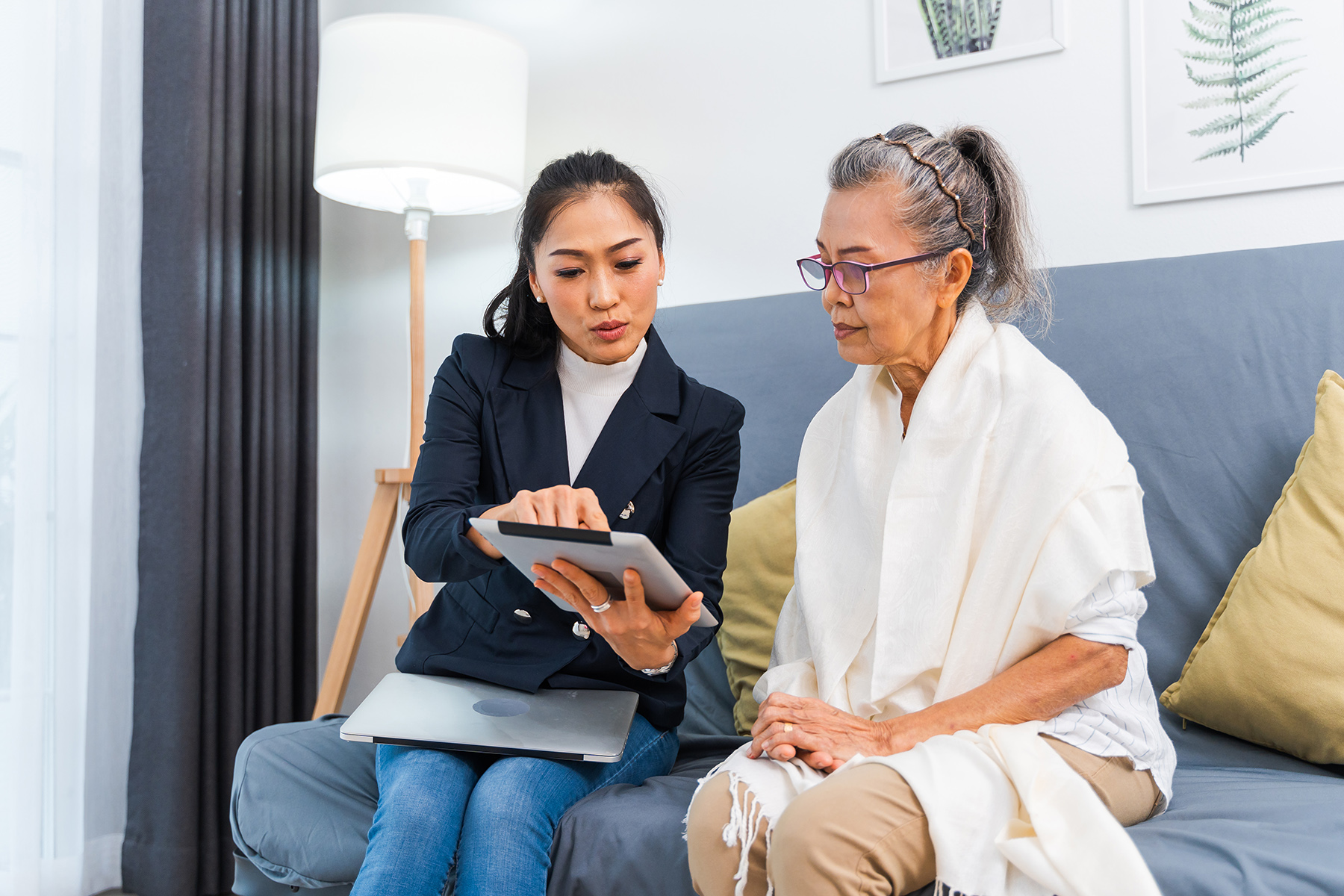
Although public healthcare services are free, you would need to pay for private healthcare, but it may be more affordable than in your home country. Still, you may need to purchase health insurance (ประกันสุขภาพ) to cover all your medical expenses.
Fortunately, there are reputable private health insurance providers in Thailand offering a choice of plans to suit your needs, such as:
What forms of contraception are available in Thailand?
Contraception is widely available as an over-the-counter medication in Thailand, with 71% of married women (2019) reportedly using some form of protection. However, not all contraceptives are free of charge, but Thai citizens older than 15 can access free condoms and birth control pills at more than 2,200 public health clinics nationwide.
Condoms
Condoms are widely available at grocery, convenience (e.g., 7-Eleven), and cosmetics (e.g., Boots) stores across Thailand. It is one of the world’s biggest producers of condoms for export, including major brands like Durex.

Local expert
Jane Evans
Insider tip
Condoms are commonly known as toong yang (ถุงยาง), which translates as rubber bag. They are also called toong yang mechai (ถุงยางมีชัย) in Thai slang after the first condom producer to sell them commercially, Mr. Mechai Viravaidya.
You can expect to pay between ฿100 and ฿200 for a package of three latex condoms. Some clinics, like PULSE in Bangkok, provide them for free.
Oral contraceptive pill
You can purchase oral contraceptive pills over-the-counter at pharmacies and stores like Boots without a prescription; prices range between around ฿40 and ฿350 for a month’s supply.

Many well-known brands (e.g., Ovral or Nordette) are available. Still, as their active pharmaceutical ingredients differ, doctors recommend bringing an extra supply until you discuss your medical history with your new doctor to ensure you use the suitable Thai equivalent.
IUD
The intrauterine device (IUD) is more than 99% effective – at preventing pregnancy – for three to five years, depending on the brand. Women under 20 can freely access it at all private and state hospitals connected with Thailand’s National Health Security Office (NHSO). However, it is not widely used and does not protect against STIs.
You’ll need an appointment at a local family planning clinic to have an IUD inserted by a health professional. They will also give you more information on the costs and after-care.
Birth control patch
Birth control patches work like pills but release estradiol and progestin – the female sex hormones – at low dosages through the skin to prevent fertilization of the egg. You can pick these up at your local hospital or pharmacy.
The most common brand in Thailand is Evra, which costs around ฿580 to ฿600.
Morning after pill
Emergency contraception or the morning-after pill is available in Thailand, and effective when taken up to 72 hours after unprotected sexual intercourse. It releases progestin to prevent ovulation and block fertilization.
Morning-after pills (e.g., Levonorgestrel, Madonna, or Postinor) are available at most pharmacies in Thailand without a prescription at around ฿45 to ฿75 per treatment.
Pregnancy and childbirth in Thailand
Thailand’s birthrate has been declining for many reasons, including:
- Couples choosing to be child-free for personal freedom and avoid high child-rearing costs
- Delaying having a child to pursue a career
- Better access to a range of contraceptive methods
- Drop in fertility rates
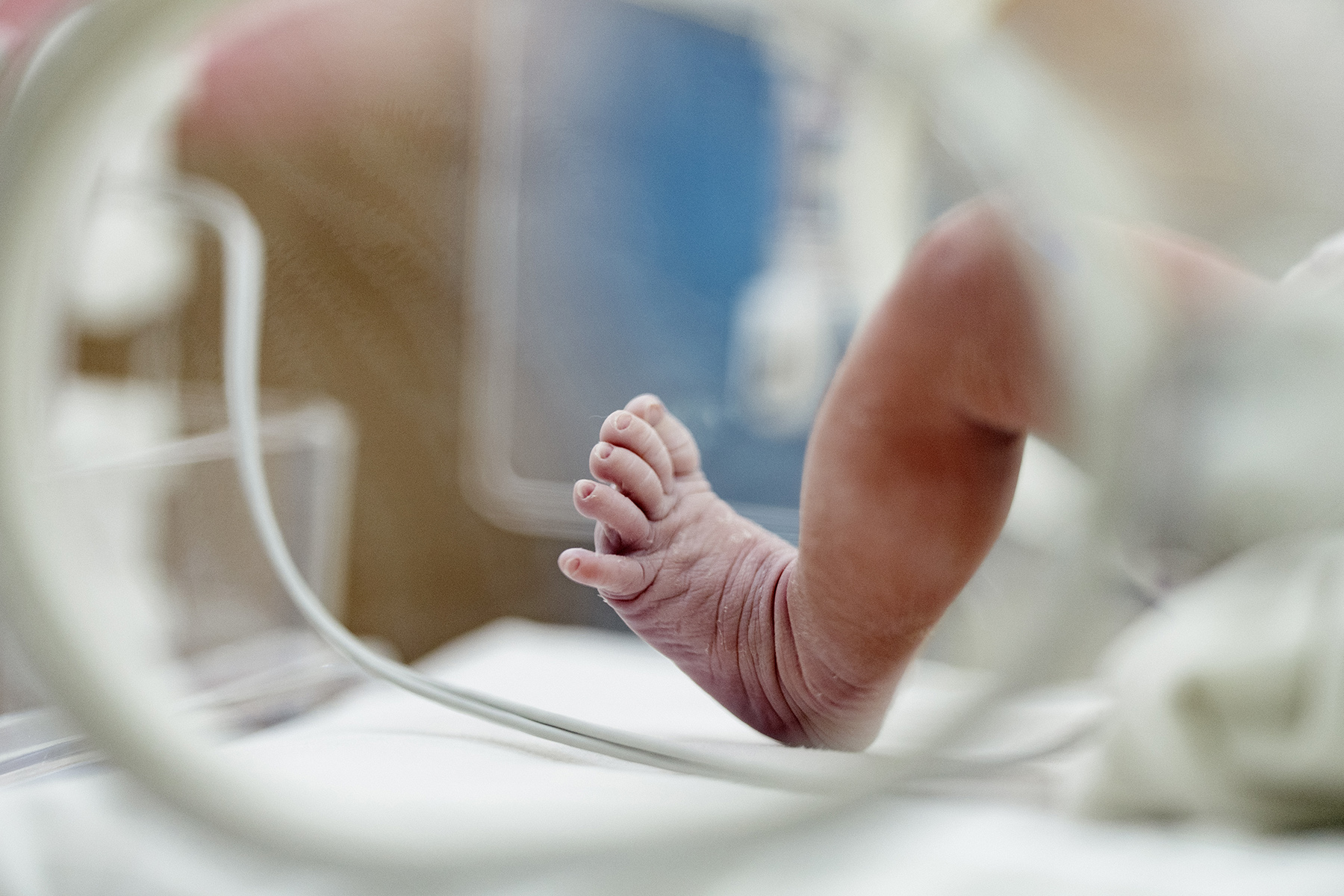
Consequently, the Thai government launched campaigns encouraging people to have more babies – to avoid becoming an aging population – through improved maternity services and welfare and childcare incentives.
The UCS does not currently cover fertility treatments, but the National Health Security Office (NHSO) plans to include it to boost birth rates further. It is unclear when this will be activated and how inclusive the cover will be.
If covered by the public healthcare system, you will have free access to pre-and-post natal maternity care through family planning clinics at public hospitals. Typically, midwives are the primary health providers in Thailand for low-risk pregnancies, while women with high-risk pregnancies are cared for by an obstetrician. In reality, more babies are delivered by obstetricians in cities than by midwives, but in rural areas, it is the opposite.
Alternatively, you can choose a private OBGYN (i.e., an obstetrics and gynecology doctor) for pregnancy and labor healthcare.
Is abortion legal in Thailand?
Abortion is legal in Thailand following a landmark case decriminalizing it in 2020. The law extended the gestation limit from 12 weeks (2021) to 20 weeks (2022). You can call the hotline at 1663 or visit RSA Thai online, the Referral System for Safe Abortions, for more information.
As Thailand’s Ministry of Public Health (MoPH) regulates abortions, they are legally available at over 110 participating clinics and hospitals nationwide. The public healthcare system covers it, but the procedure costs around ฿4,500 at a private clinic.
Despite this new legal landscape, many women still find it challenging to access doctors who are willing to perform a termination of pregnancy, particularly in rural areas.
STIs and STDs in Thailand
STIs are on the rise in Thailand, with gonorrhea and chlamydia among the most prevalent diseases. These rates are particularly alarming among the youth (15–24), who account for 40% of all infections, leading to calls for routine screenings.
If you notice any unusual symptoms, like discharge, painful urination, or rashes, book a confidential test appointment at a public or private sexual health clinic.
Private clinics like PULSE and Safe are more likely to offer English-language services and expat-friendly support. Doctors (i.e., GPs) can also administer exams, but it’s not as comprehensive or quick as private sexual health clinics.
Your treatment will depend on the STI/STD, but often include antibiotics. These are available from pharmacies with a doctor’s prescription.
HIV/AIDS
While new HIV infections and AIDS-related deaths have decreased in Thailand, it remains a serious health concern among substance users and sex workers.
Statistics recorded in 2022 indicated that 560,000 people were living with the virus, roughly 1% of the Thai population. The mortality rate among Thais living with HIV is lower than in other parts of the world. AIDS-related deaths are decreasing as patients receive an earlier diagnosis and have better access to treatment.
While there is no cure for HIV, it can be successfully managed when identified early. Regular testing and proper precautions will help you cope and live a healthy life for many years.

Preventive measures are also invaluable, whether practicing safe sex or avoiding non-sterile equipment.
If you have been exposed to HIV, visit a sexual health clinic or emergency department at a Thai hospital as soon as possible. You’ll undergo testing and immediately start emergency treatment with post-exposure prophylaxis (PEP) within 72 hours of exposure. While PEP is not a cure, it may prevent HIV from entering cells in the body. This treatment is available at most clinics and hospitals in Thailand, and it’s covered under national insurance.
There are plenty of compassionate, community-minded clinics in Thailand that can offer support help, including PULSE, Asia’s leading sexual healthcare clinic.
Menstrual health in Thailand
Thai grocery, convenience, and cosmetics stores all stock a wide selection of feminine hygiene items, including:
- Sanitary pads/towels
- Tampons
- Menstrual cups

Local expert
Jane Evans
Insider tip
Thai women do not commonly use tampons, so it is easer to buy them in areas with large expat communities. Menstrual cups are also not yet widely available in Thailand.
You’ll also find these products online at Boots Thailand.
However, the 7% value-added tax on all these items created a situation of period poverty in Thailand, where only around 35% of women can afford sanitary pads. As such, there has been social criticism and calls for more affordable products and programs where women can access free products.
Sexual health and cancer screening programs in Thailand
Thailand implements a National Cancer Control Program (NCCP – แผนการป้องกันและควบคุมโรคมะเร็งแห่งชาติ) that provides routine screenings for the early detection and treatment of cancer, including:
- Breast cancer
- Cervical cancer
- Ovarian cancer
- Prostate cancer
- Testicular cancer
- Penile cancer
Many private hospitals, like Bangkok Hospital, also offer customized health-check packages ranging from ฿4,200 to 27,500.
Breast cancer
Breast cancer is most prevalent among women in Thailand, with an overall five-year survival rate of 75.1% (depending on the stage of first diagnosis).
A clinical breast examination (CBE) is available to all women aged 40 to 70, and from 45, they are encouraged to do a mammogram every two years. Thai health authorities also promote monthly breast self-examination (BSE).
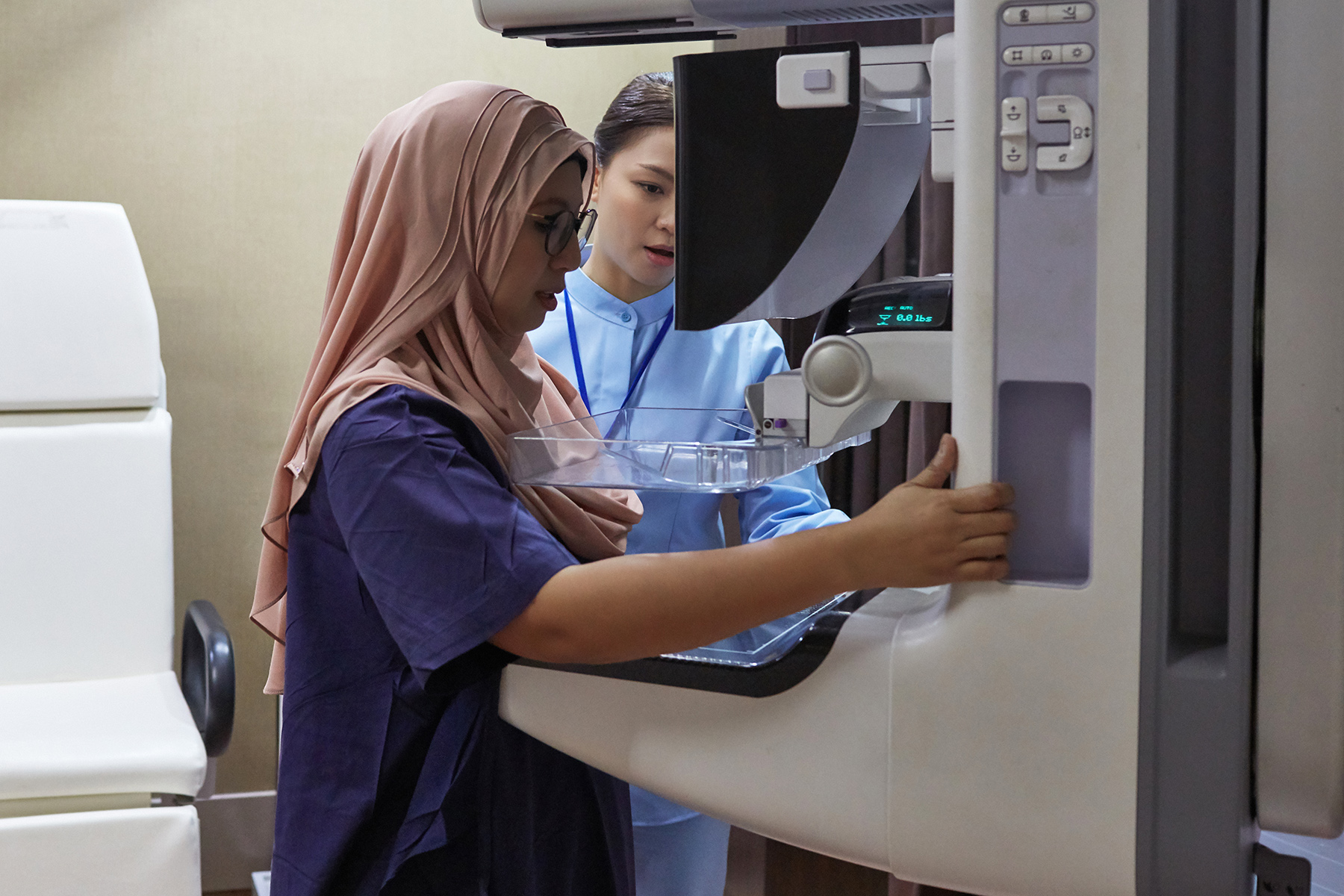
If you find any abnormalities or see changes in your breasts, contact your doctor, who will refer you for screenings (i.e., mammograms) covered under the public healthcare system. Indeed, you can opt to go private, as most health insurance will fund it, too. Mammograms are typically available privately for under ฿5,000
The procedure takes less than 30 minutes and is painless but not without some discomfort. Regular check-ups and monthly self-examinations increase the likelihood of early detection and a better prognosis.
Cervical cancer
Cervical cancer was once the most frequent cancer found among Thai women. However, routine screening and the HPV vaccination contributed to its drop in 2002 to the fourth most common.
Between 30 and 60, women registered with the UCS will receive a letter every five years inviting them to undergo routine cervical screening. It involves an internal physical examination – a pap smear – where the health practitioner scrapes cells from your cervix to be tested. Your doctor will contact you for further exploration if the laboratory finds any abnormalities.

Local expert
Jane Evans
Insider tip
In Thailand, when you undergo a pap smear test, you will receive a tube-like sarong to wrap around your waist for modesty after undressing. Thai health professionals are generally more gentle and empathetic compared to their counterparts from other regions.
Alternatively, you can contact your private GP for the same procedure.
Ovarian cancer
Ovarian is the sixth most prevalent cancer among women in Thailand, with roughly 1,700 new cases per year. The prognosis is good when caught early. Unfortunately, there are no national screening programs, primarily due to testing being ineffective at picking early signs.
If you are worried about symptoms of ovarian cancer, you can book an exploratory appointment with your doctor.
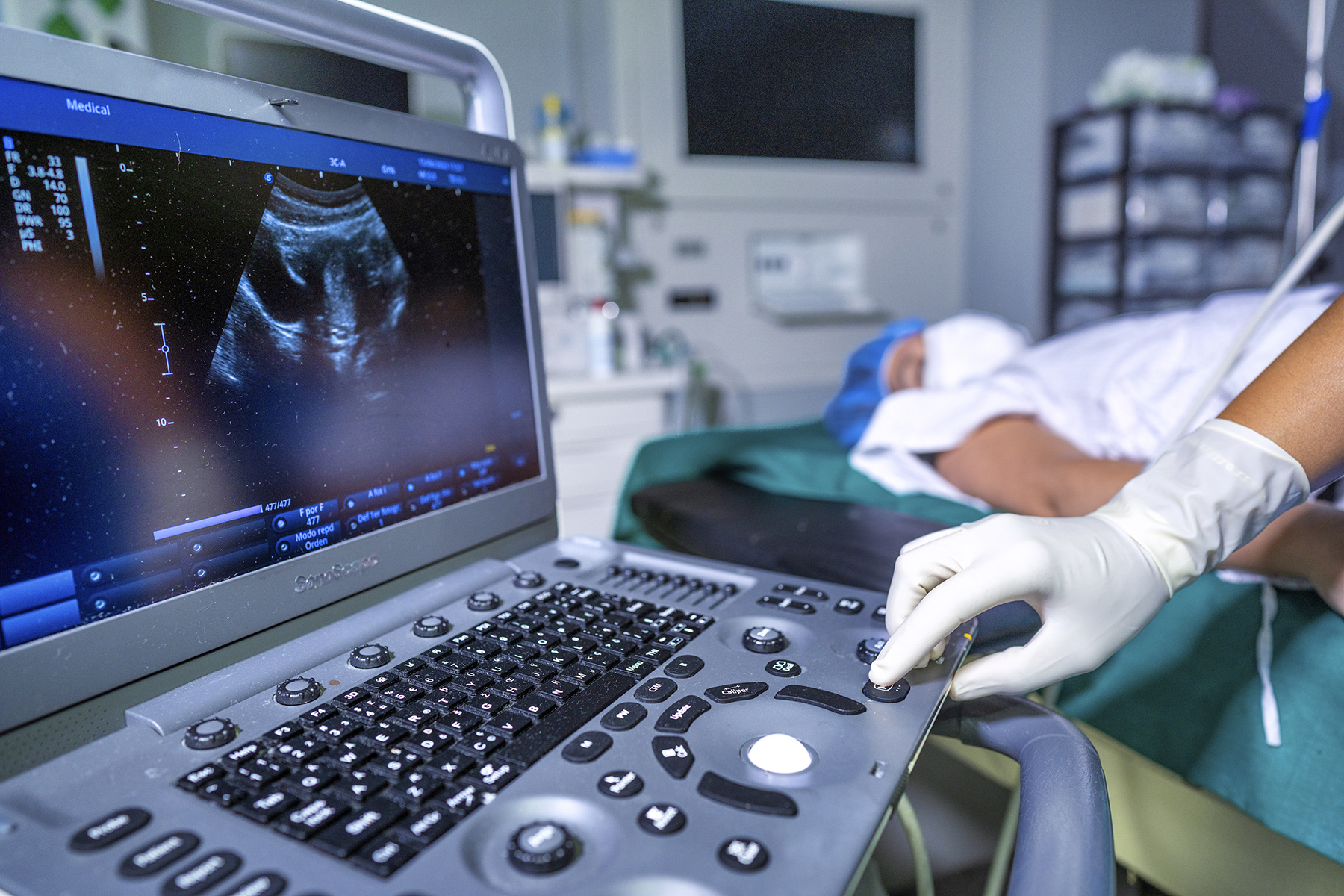
Possible symptoms include:
- Abdominal pain, bloating, or discomfort in the pelvic area
- A lump or change in the size of the abdomen
- Abnormal vaginal bleeding or discharge
- Loss of appetite
- Unexplained weight loss
- Change in bowel habit
- Frequent urination
Ovarian cancer does require several tests for diagnosis, including:
- Pap smears
- Ultrasounds
- CT scans
- Blood tests
Women between 55 and 64 are most at risk and would benefit from regular testing.
Prostate cancer
Prostate cancer is the fourth most prevalent among men in Thailand, with around 3,700 new cases diagnosed and 1,700 deaths each year.
No national screening program exists in the country; however, men over 50 are advised to get annual checks. This involves a digital rectal exam and a Prostate-specific antigen (PSA) test that measures the antigen levels in your blood. Men can also monitor symptoms, like urination frequency or changes in flow.
If you notice anything unusual, contact your doctor or local sexual health clinic as soon as possible.
Testicular cancer
Thailand has one of the world’s lowest incidence rates of testicular cancer at 0.5 per 100,000, and it is most common among younger men between 20 and 40.
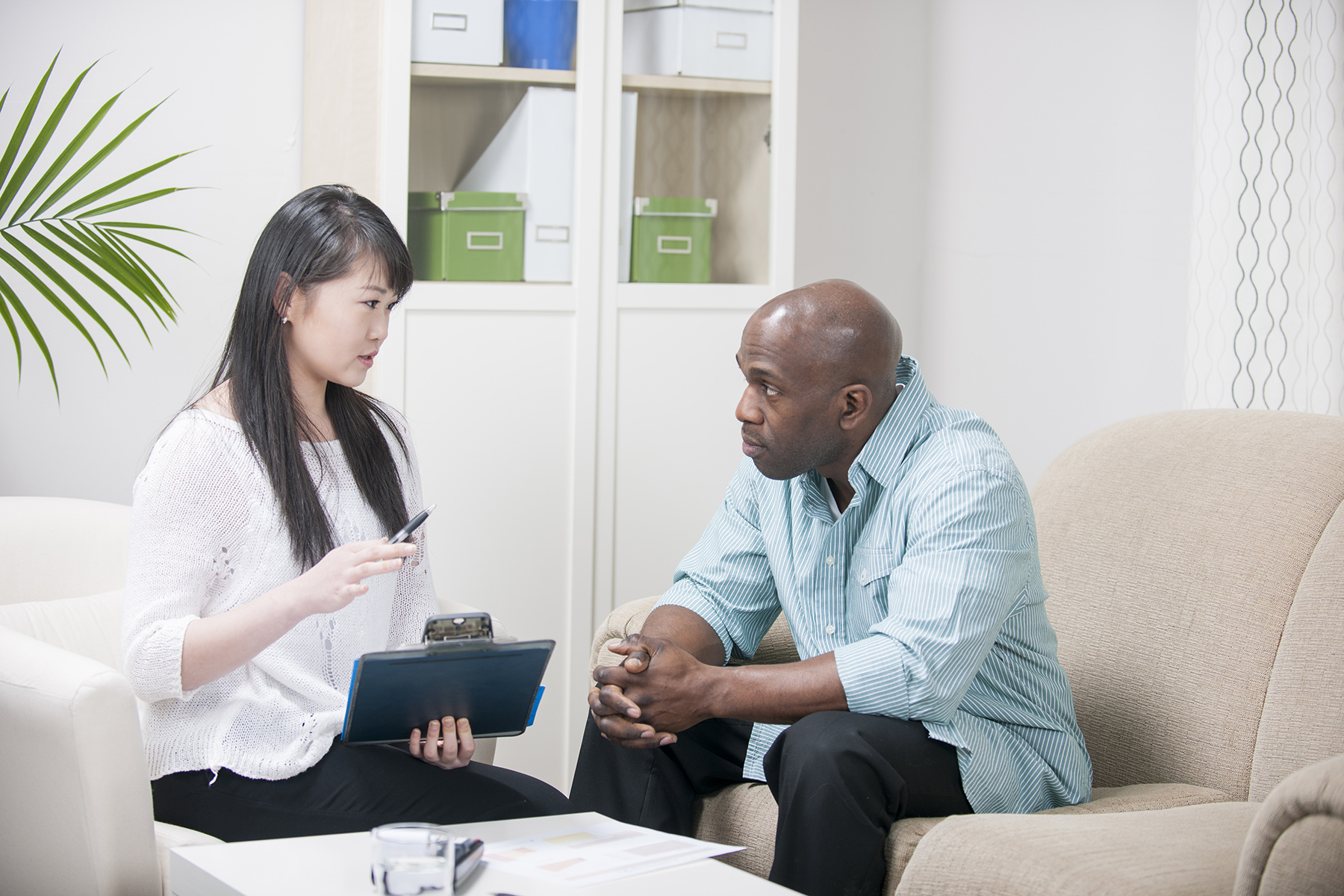
Nevertheless, it’s vital to do monthly self-examinations and check for any changes to your testicle size, shape, and weight. If you find a lump or experience pain, discomfort, or a feeling of heaviness, book an appointment with your GP for a further clinical examination.
Doctors use ultrasound to diagnose testicular cancer. This is a quick and painless procedure that checks your testes for tumors. Early diagnosis is critical as successful removal leads to a cure rate of nearly 100%.
Penile cancer
Penile cancer is rare but more common in Thailand than elsewhere, with an incidence rate of 1.4 per 100,000. Fortunately, numbers are decreasing. Incidences increase with age, starting from around 35 or 40, but are most prevalent in senior men.
Penile cancer refers to any form of malignancy in or around the penis. However, it is most commonly associated with squamous cell carcinoma, a type of skin cancer that mainly affects the penis glands and foreskin.
If you have any rashes or ulcers that do not go away, it’s time to book an appointment with your GP or sexual health clinic. This is crucial because penile cancer can only be diagnosed with a biopsy. The prognosis is good, with local survival rates of around 80% if it has not spread.
Services in Thailand dealing with sexual problems
In Thailand, there are various avenues to get support for sexual problems, including general medical concerns like low libido or sex drive. Clinical appointments and counseling services are readily available at private therapy clinics to address these issues.
Mental health is increasingly recognized for its effects on sexual desire, performance, and anxiety. While Thailand’s healthcare system covers primary psychological services, it is not extensive. As such, it may be better to go private, and you’ll find many counselors, sex therapists, and sexologists who can help.
Online databases like Therapy Route and Psychology Matters can be helpful resources for locating the right therapist.
Erectile dysfunction (ED) treatment
There is no comprehensive data on erectile dysfunction (ED) in Thailand, but it’s a common condition that becomes more prevalent as men age. What’s more, ED can be a symptom of other, more serious health conditions.
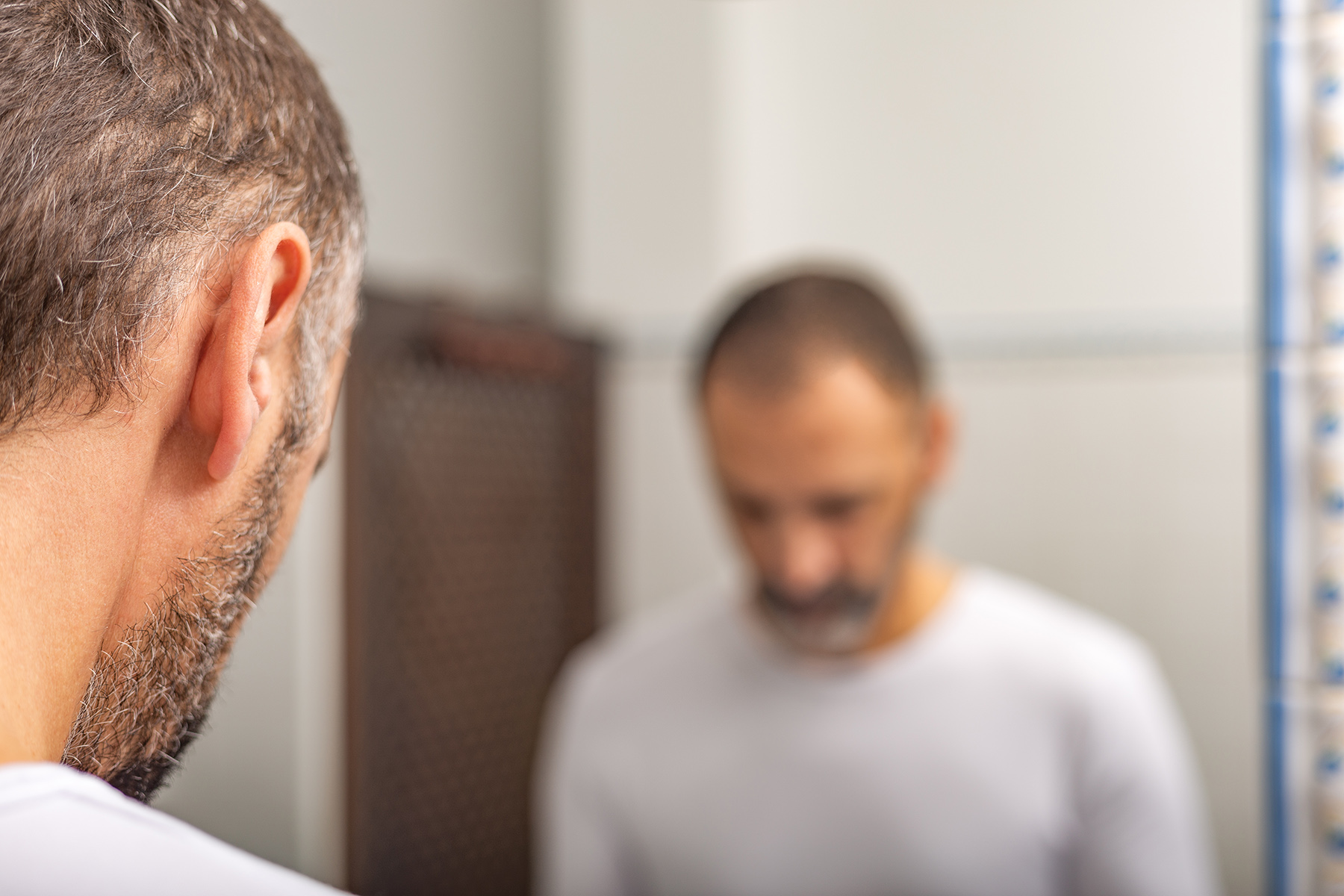
Booking an appointment with your urologist is the first step. During the examination, the doctor will ask about your medical history, test for underlying causes, and even do a prostate screening. Treatment can be as simple as lifestyle changes in diet and exercise or could include testosterone replacement.
Sildenafil (ซิลเดนาฟิล), or Viagra, is widely available in Thailand and commonly used to treat ED. It is produced locally in Thailand under the brand name Sidegra (ซิเดกร้า) and is available from most pharmacies with a prescription.
Services dealing with sexual abuse and assault in Thailand
Sexual assault is covered under Section 276 of Thailand’s Criminal Code with a prison sentence of up to 20 years and a fine of ฿80,000 to ฿400,000 for rape. Laws against sexual harassment are relatively new and ill-defined in Thailand but aim to protect the victims.
One Stop Crisis Centers (OSCC) at most Thai hospitals are multidisciplinary clinics offering medical treatment, legal advice, and counseling to survivors of abuse, violence, and sexual assault. You can reach the 24-hour hotline at 1300 with English-speaking and Thai counselors.
Other support and counseling organizations include:
| Organization | Phone |
| Women and Men Progressive Movement Foundation (WMP – มูลนิธิหญิงชายก้าวไกล) | 02-513-2889 |
| 1323 ปรึกษาปัญหาสุขภาพจิต | 1323 |
| Pratthanadee Foundation | 02-331-4731 |
| Childline Thailand Foundation | 1387 |
| Friends of Women Foundation | 02-513-1001 |
| Shero Thailand | Scan QR Code |
| Center for the Protection of Children’s Rights Foundation (CPCR) | 02-412-1196 |
| Social Equality Promotion Foundation | 02-047-2086 |
Reporting sexual abuse and assault
Call 191 to reach the central call center for all emergencies in Thailand. If you require a non-Thai-speaking service, call 1155 – the Tourist Police 24/7 hotline. Most of these officers are also fluent in English. For immediate medical attention, call 1669 for an ambulance.
Indeed, you can seek urgent help from any OSCCs at Thai state hospitals. Just note that some local centers require a police referral as they work directly with law enforcement to gather forensic evidence. However, in Bangkok, the Police General Hospital accepts all sexual assault survivors without a police referral. Alternatively, you can contact your home country’s embassy for help if you are not a Thai citizen.
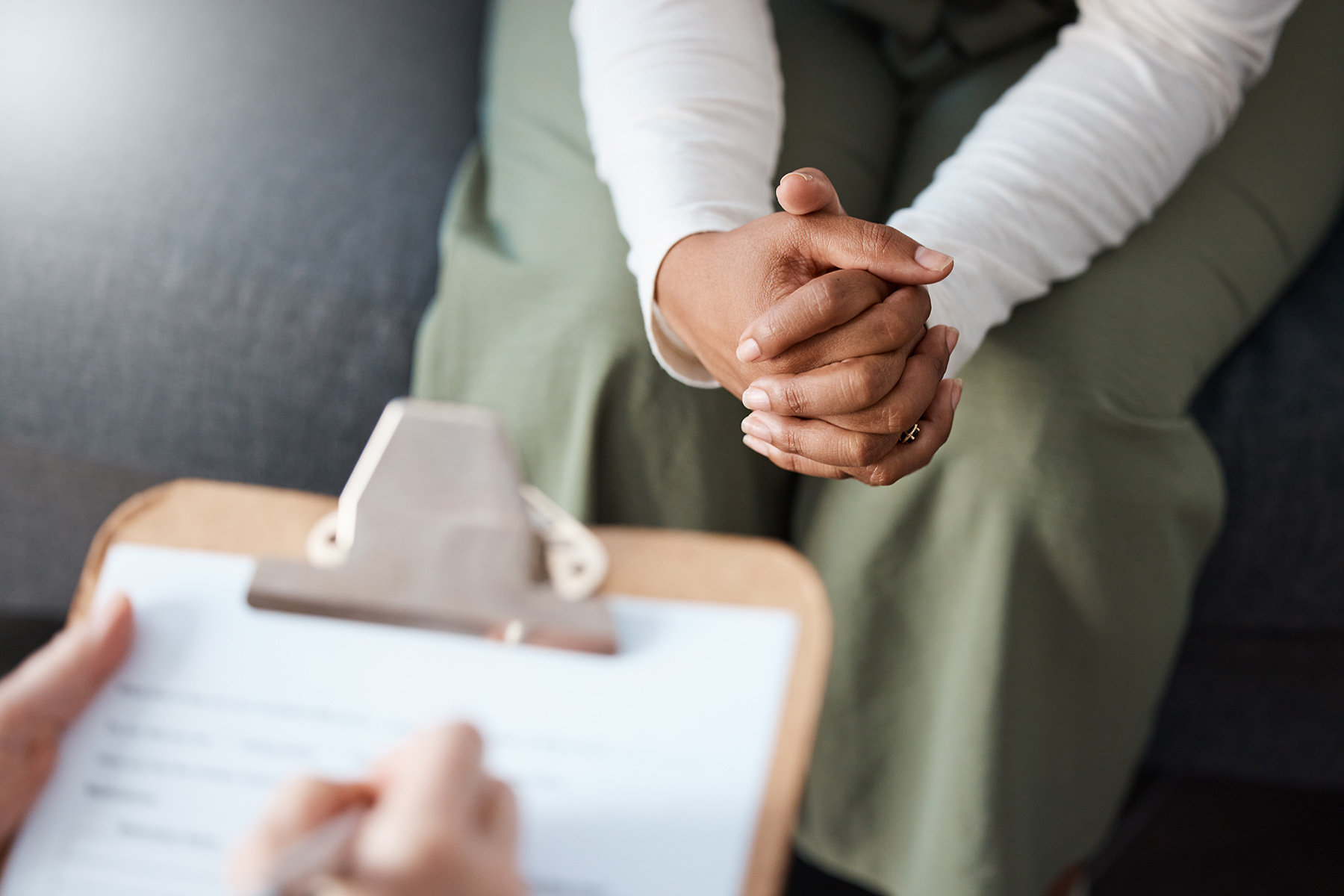
It is up to you whether to report the abuse or assault to the police; no one should pressure you into doing it. However, if the officers can still gather evidence, they may have a better chance to identify and charge the alleged offender. A specially trained counselor from OSCC can guide and support you through the process.
When you make a report, you can expect the following:
- You can request a female officer
- If you do not speak Thai, you can ask for an interpreter
- You will undergo a medical examination to preserve any forensic evidence
- They will also take your clothes; if you’ve already changed, try to keep the clothing you had on in a paper bag to give to the police
- Officers will take your statement and also examine your phone or other recording devices but will return these items
- You do not need to render your passport
- You can also request a lawyer
Young people’s sexual health in Thailand
Sex education
Thailand schools teach Comprehensive Sexuality Education (CSE) as part of the curriculum to children from about the age of eight. Each year, the content and approach are adapted to be age-appropriate. It claims to go beyond human biology, reproduction, risks, and diseases by developing essential life skills and exploring social, cultural, and gender influences on sexuality.

However, a Unicef review (2016) found that the program fell short when teaching young people about essential topics, such as:
- Sexual rights
- Gender equality, diversity, and non-conformity (e.g., LGBTQIA+, transgender, non-binary)
- Respect for the rights of others and domestic violence
- Safe abortions
- Same-sex relationships
- Bullying
The program also relies too heavily on delivering information without encouraging critical thinking when learning about sexuality and effective communication and negotiation skills.
Its scope is too narrow by focusing on abstinence (i.e., no extra-marital sex) and preventing unwanted pregnancies, STIs, and HIV. Instead, it needs to adapt its approach to promote healthy sexuality, inclusive attitudes, respect for others, and positive sexual experiences. Moreover, most teachers did not have enough expertise to encourage a discussion.
Youth sexual health
The lack of depth in sex education is reflective of the country’s conservative approach when it comes to talking about sex.
It may further contribute to the rise of STIs and teen pregnancies, as young people may become sexually active – from as young as 15 – without sufficient knowledge or the confidence to discuss issues with their parents or teachers.
Sexual health services for youth
As in many other countries, young people have more access to sexual health services in cities than in rural and remote areas. Young sexually active women and teen girls may also be more hesitant to seek sexual health and reproductive services as they want to avoid judgment, victim blaming, or shaming. This may lead to engaging in risky sexual behavior, resulting in infections, unwanted pregnancies, unsafe abortions, and not getting treatment or support.
Therefore, online resources targeting youth are essential to fill this sexual health service gap in Thailand. For instance, the non-profit Path2Health Foundation has pushed several initiatives to increase sexual literacy and encourage safe and open discussions between parents and their children.
It also launched Lovecare YM2M: Young Men Health Station in 2018. It’s an interactive sexual health and counseling service, especially for young gay men and transgender women who are sexually active and may be at risk of contracting STIs and HIV.
LGBTQIA+ sexual health in Thailand
Same-sex relationships
Thailand decriminalized same-sex sexual acts in 1956. In September 2024, the country legalized same-sex marriage, with a majority of the population (73%) supporting gay marriage.
Societal attitudes towards the LGBTQIA+ community and same-sex relationships are generally positive and tolerant, according to Equaldex (measures the status of LGBT rights, laws, freedoms, and public opinion). For example, events like Bangkok Pride and Miss International Queen continue to grow in popularity, illustrating optimism and acceptance of Thailand’s LGBT+ community.
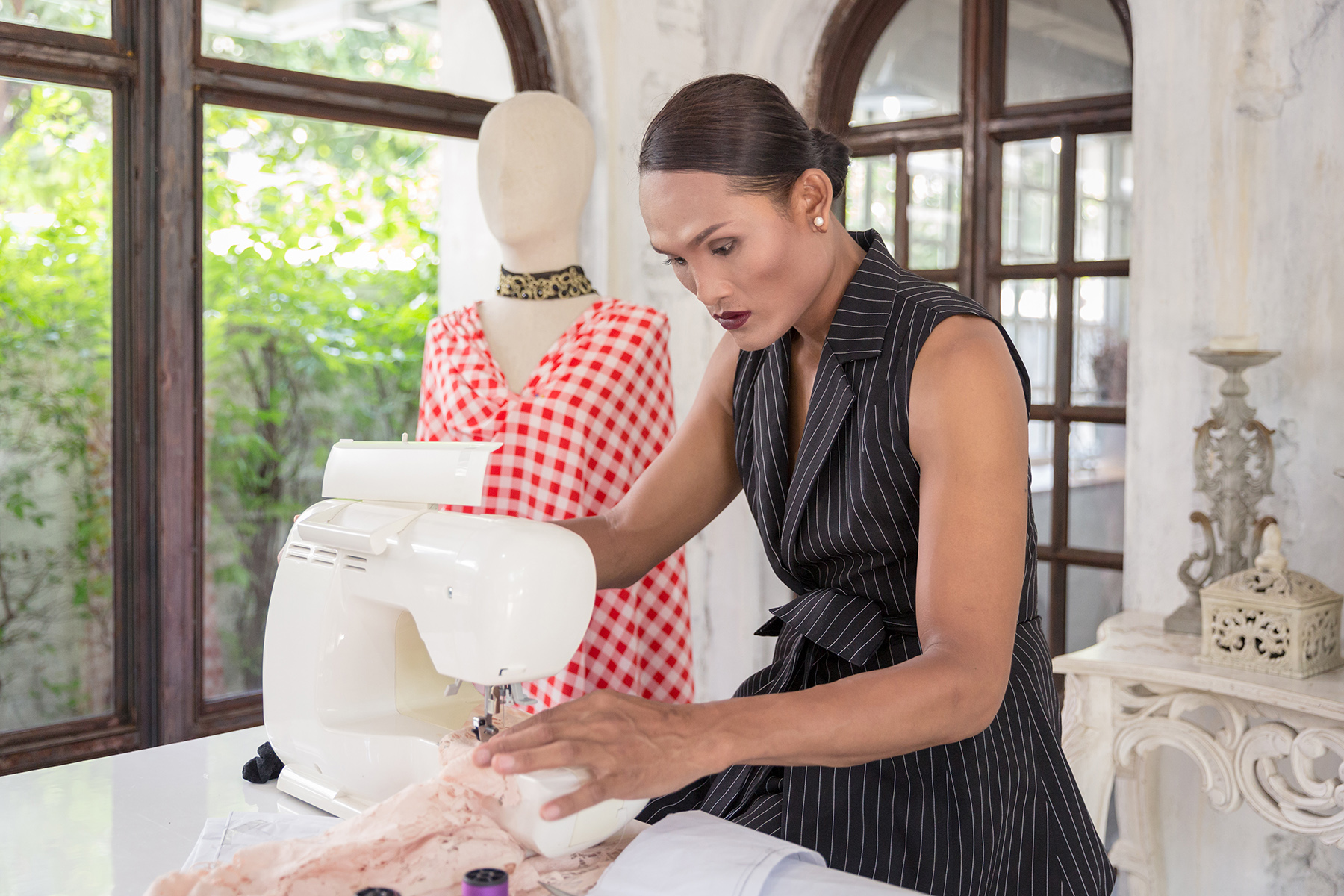
Thai law prohibits discrimination in the workplace on the grounds of gender identity but has yet to implement specific laws that prevent discrimination based on sexual orientation. However, a recent study found that trans men and trans women still experience disproportionate discrimination in the job market, which could negatively affect their mental health and well-being.
Sexual health for LGBTQIA+
When accessing public healthcare services, patients from the LGBTQIA+ community often have to deal with insensitive healthcare workers but can also find inclusive services, especially in the cities. There are no specific sexual health services addressing the needs of lesbian and bisexual women. Still, some dedicated programs – including HIV testing – exist for gay and bisexual men and trans women.
Many non-profit organizations, including the Rainbow Sky Association (RSAT) and the Love Foundation, also support the community.
Gender-reaffirming surgery (i.e., sex reassignment surgery) is legal in Thailand. However, the law does not allow you to change the gender assigned at birth on official documents or ID. You would also need private health insurance as the UCS does not include it in their services. Still, many private clinics and hospitals offer this procedure, so it is best to discuss your options with your healthcare provider.
To qualify, you must meet the following criteria:
- Be at least 18; under 20 still requires parental consent
- Have one of the following diagnoses (or associated conditions)
- Gender identity disorder
- Gender dysphoria
- Referral from a psychiatrist, psychiatric social worker, or clinical psychologist
- Lived full-time in the cross-gender role for at least one year
Useful resources
- Ministry of Public Health (MOPH) – the Thai government body in charge of public health with online resources for sexual health
- National Health Security Office (NHSO) – the public organization responsible for managing Thailand’s universal healthcare system.
- PULSE Clinic – Asia’s leading sexual health network with advice, testing, and treatment at clinics across Thailand
- Safe Clinic – offering same-day STD testing in Bangkok and online assistance
- Pratthanadee Foundation – supports and empowers women to leave abusive relationships; counseling is available in Thai and English
